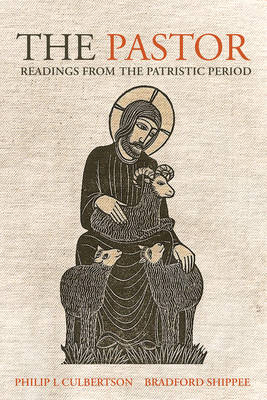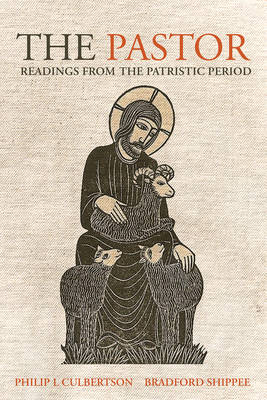
- Retrait gratuit dans votre magasin Club
- 7.000.000 titres dans notre catalogue
- Payer en toute sécurité
- Toujours un magasin près de chez vous
- Retrait gratuit dans votre magasin Club
- 7.000.0000 titres dans notre catalogue
- Payer en toute sécurité
- Toujours un magasin près de chez vous
The Pastor
Readings from the Patristic Period
Philip L. Culbertson, Arthur B Shippee, Philip Leroy Culbertson, Arthur Bradford Shippee
Livre broché | Anglais
41,95 €
+ 83 points
Description
"Patristic theology is primarily pastoral. Yet often the study of writings from the first six centuries of the church is pursued in ways that make the polemical, philosophical, and political aspects stand out. But if one reads around those texts that are profiled in these ways, the pastoral concerns will emerge. Even contemporary interests in social, economic, and deconstructionist approaches locate much of the data for their questions within or near texts that also can be looked at for the descriptions of shepherding the flock. Thus it is likely that any who read ancient Christian literature will find this volume helpful. The introduction is masterful. No other volume known to me does that so well through the translated words of ancient leaders. Whatever historical surveys one finds helpful, they cannot replace this guide. It is done with such competence and flair that specialists who are historians with no particular interest in ministry other than its being a feature of the early church will need to consult it. Those, however, who as believers and ministers are attempting to serve contemporary congregations will devour this book. No seminarian should be without it." -Frederick W. Norris, Second Century "Adds a much-needed dimension to the field of pastoral care. . . . A fascinating introduction tracing the concept of 'pastor' through history." -The Living Church "In evaluating the work of a pastor today there has been an imbalance caused by a neglect of the tradition of the church. This is corrected by the present work, which is a most interesting collection of extracts from the patristic period bearing on the work and spirituality of the Christian minister." -Theological Book Review Philip Culbertson is Adjunct Lecturer in Theology at the University of Auckland in New Zealand and Adjunct Instructor in Philosophy at College of the Desert in Palm Springs, California. He is an ordained Episcopal priest and has divided his career between university teaching and pastoral ministry in parishes. Arthur Shippee teaches Religious Studies at Queens College, C.U.N.Y., and Eugene Lang College, New York. Also a Presbyterian pastor, he is active in the Presbytery of Southern New England.
Spécifications
Parties prenantes
- Auteur(s) :
- Editeur:
Contenu
- Nombre de pages :
- 256
- Langue:
- Anglais
Caractéristiques
- EAN:
- 9780800624293
- Date de parution :
- 02-01-09
- Format:
- Livre broché
- Format numérique:
- Trade paperback (VS)
- Dimensions :
- 153 mm x 229 mm
- Poids :
- 403 g

Les avis
Nous publions uniquement les avis qui respectent les conditions requises. Consultez nos conditions pour les avis.






